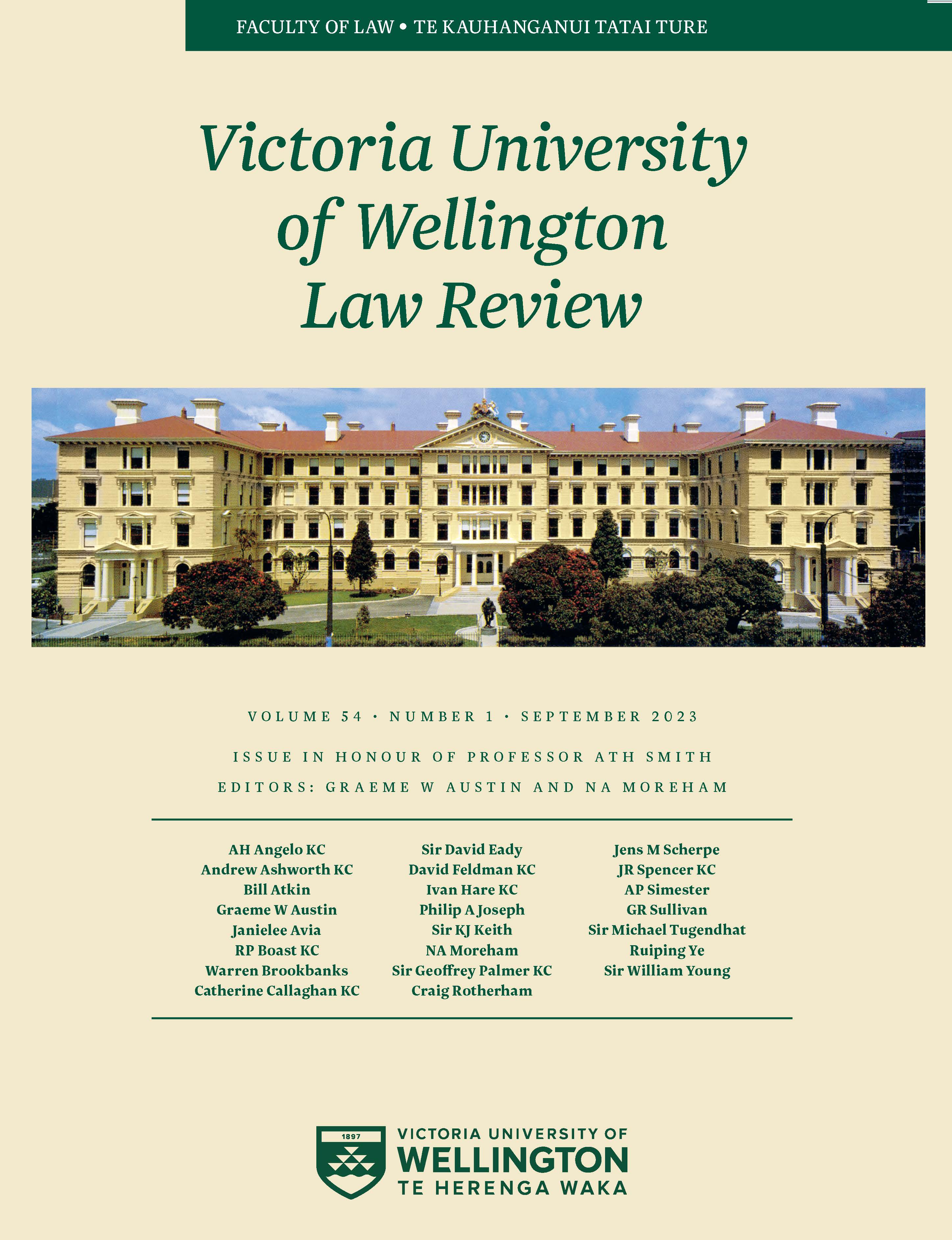A Case of the Highest Authority… So What Does It Mean?
DOI:
https://doi.org/10.26686/vuwlr.v54i1.8439Abstract
There has been for some time a widespread view that anyone under investigation with regard to suspected wrongdoing should be entitled to anonymity prior to charge. Yet no attempt has been made to legislate. The matter is governed currently by the recently developed law of privacy, deriving from such cases as Campbell v MGN Ltd and culminating in the decision of the Supreme Court in ZXC v Bloomberg LP. It seems to be accepted, not only in England but under human rights law generally, that such information should be regarded as "private". This has not seriously been undermined in any of the leading cases. There is surely a serious question as to whether a suspect does indeed have a reasonable expectation that there should be such a blanket over his or her identity. This information is not purely personal. It relates to suspected wrongdoing – information which legitimately concerns not only any individual under suspicion but also, for example, "victims" and no doubt other fellow citizens interested in getting to the truth and in the administration of justice. Naturally, if a suspect's name leaks out, that individual's reputation may be seriously damaged. Some take the view that compensation should be recoverable specifically for injury to reputation – even though the claim would not be brought in defamation. Yet privacy and libel are distinct causes of action with different purposes to fulfil. If damages are to be sought to vindicate reputation, it is hard to see why a defendant should not have available the traditional defences and other principles applying in defamation. If a claimant wishes to demonstrate that the allegations are false, as well as intrusive, why should he not be subject to the same disciplines and risks as one who sues in libel?
Downloads
Downloads
Published
How to Cite
Issue
Section
License
Authors retain copyright in their work published in the Victoria University of Wellington Law Review.


